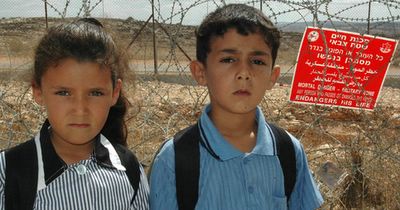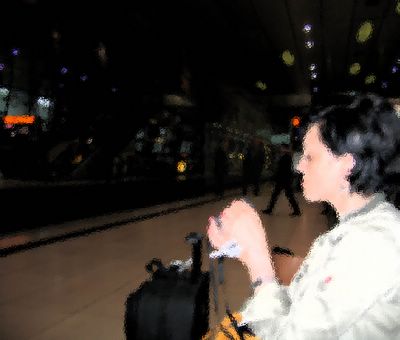
"There is a tradition in Islam of women’s equality, and the life of the Prophet Muhammad is often offered as proof of this; it is said that Muhammad washed his own clothes and darned his own socks, and often served meals to his youngest wife Ai’sha, who later led his army into battle and was regarded as an important and respected interpreter of Islamic laws. The Qur’an leveled the social balances for women: in Islam, women had the right to inherit property, own and operate businesses, and be educated. It banned several misogynist practices, such as the infanticide of newborn baby girls, who were often unwanted by parents who preferred male children.
---
"I understood—and not for the first time—the astounding disconnection between the lives of Arab women, and the lives of Arab women as represented by the American media and entertainment industries, thus as perceived by Americans themselves.
The statements made by my ponytailed student smacked of an underlying assumption that I have heard many times before: we American women have finally succeeded in moving the feminist movement to the top of our nation’s list of priorities; now it’s time to help our less fortunate sisters. Of course, over the years, American feminism has opened its gates (after much pounding) to other versions of feminism, such as black feminism and other non-white, non-upper-middle-class feminisms. Therefore, the focus on Arab women’s issues illustrates the good intentions of American feminism; however, my concern is with the “big sister” manner in which those intentions are manifested. Often, Arab women’s voices are excluded from discussions concerning their own lives, and they are to be “informed” about feminism, as if it is an ideology exclusive to American women alone."
---
"Not only do the struggles of Arab feminists have a long history, but over the 1980s and 1990s, as Val Moghadam observes in the same book, “women’s NGOs [in the Middle East and North Africa] have grown exponentially and are taking on increasingly important responsibilities in the context of state withdrawal from the provision of social services and in the context of a global trend in the expansion of civil society.” Organizations explicitly devoted to women are growing rapidly in Egypt, Tunisia, and Morocco, while more informal service-oriented organizations led by women play some of the same roles in many other Middle Eastern nations. Some of the leading organizations in Egypt include: the New Woman’s Group; Arab Women’s Publishing House; the Alliance of Arab Women; the Association for the Development and Enhancement of Women; Together; Progressive Women’s Union; the group of women who published The Legal Rights of the Egyptian Woman in Theory and Practice; and The Society for the Daughter of the Earth. (See the chapter by Nadje Sadig al-Ali in Organizing Women.) Taken as a whole, it is a movement that, if allied with U.S. and other feminisms, could improve the lives of women around the world."
---
"The media’s popular portrayal of Muslim women as universally helpless and dominated by the patriarchy that continues to exist in Arab culture (as if any society is free of it) has reinforced American perceptions that Arabs and Muslims are degenerate and twisted, thus worthy of domination and bombing.
And yet, if Americans, especially American women, understood the long and enduring history of Arab feminism, then perhaps my students would be able to formulate comments on Arab and Muslim women that were more informed and sensitive. Such commentaries would recognize the complexity of historical struggles, rather than making those waging these struggles invisible under a pervasive stereotype. It is not up to Western women to diagnose inequality in Arab society—it has been diagnosed. Rather, American women should recognize that Arab women themselves—and even some Arab men—have grappled with gender inequality for over a century. This is the message that American feminists have largely not heard, although it must be heard and Arab women’s voices included in the discussion of building bridges and confronting women’s issues on a global scale.”
"The media’s popular portrayal of Muslim women as universally helpless and dominated by the patriarchy that continues to exist in Arab culture (as if any society is free of it) has reinforced American perceptions that Arabs and Muslims are degenerate and twisted, thus worthy of domination and bombing.
And yet, if Americans, especially American women, understood the long and enduring history of Arab feminism, then perhaps my students would be able to formulate comments on Arab and Muslim women that were more informed and sensitive. Such commentaries would recognize the complexity of historical struggles, rather than making those waging these struggles invisible under a pervasive stereotype. It is not up to Western women to diagnose inequality in Arab society—it has been diagnosed. Rather, American women should recognize that Arab women themselves—and even some Arab men—have grappled with gender inequality for over a century. This is the message that American feminists have largely not heard, although it must be heard and Arab women’s voices included in the discussion of building bridges and confronting women’s issues on a global scale.”
Selections from an essay by Susan Muaddi Darraj (a student at Johns Hopkins University) on Arab feminism.





























